Ukraine war born of myth and Putin’s psychopathy
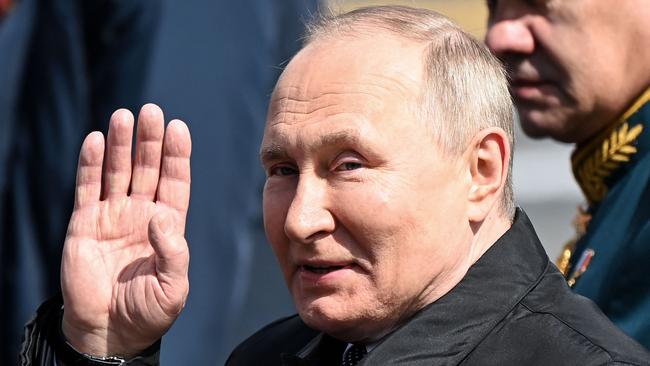
It might be expected that when a country attacks another it does so in search of material gains – traditionally this was usually the case.
Russia invades Ukraine in order to win territory, seize natural resources and industrial centres, and to establish a land corridor to Crimea and the Black Sea, facilitating trade and opening direct contact with the part of its naval fleet it keeps there. Further, this land grab stops Ukraine developing into a Western country and joining NATO.
All of this has happened in a context in which war, to us today, seems like a terrible thing that occurred long, long ago – remote, alien, and confounding. Surely it doesn’t belong in our world, at least in our Western world. Which makes it even more important to understanding the perplexing motivation in play.
The spotlight is on the one man who initiated this war and drives it. Part of the answer to the question of motive may lie with the Russian whom Putin nominates as his favourite author, Fyodor Dostoevsky.
Henry Kissinger described Putin as a character out of a Dostoevsky novel, an association that Putin evidently liked.
It is the mature Dostoevsky’s world view that is of interest. He was the master diagnostician of what followed in the wake of the crisis of faith in the mid-19th century.
In his novel, The Possessed (1872), he described the havoc wreaked on a youth generation being captured by secular European values, while rejecting traditional Russia and its Orthodox Christianity. The pivotal character, Nicholas Stavrogin, is a Russian aristocrat, around Hamlet’s age when we meet him, and also a Prince. He has the aura of the mysterious stranger, arriving from beyond, good-looking, brilliant, haunted, solitary, fearless, and living outside all normal social bounds and conventions. He carries direct Christ allusions, stavros meaning “cross” in Greek. Everybody from his own generation is in love with him, male and female.
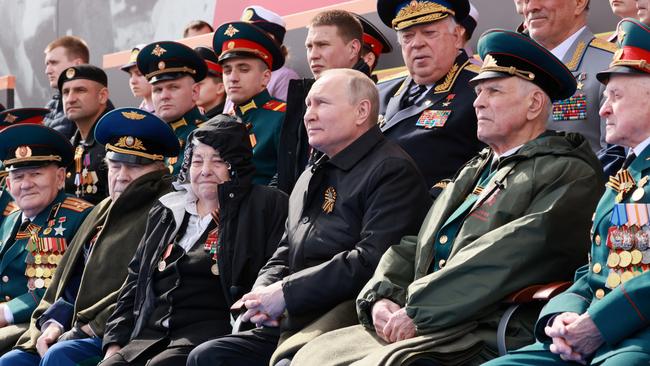
A few years earlier, adoring disciples travelled the world with him – one says, Stavrogin brought him back from the dead. He taught them, for instance, that if it could be mathematically proven that the truth excludes Christ, he would choose Christ. But Stavrogin lost his faith, and thereafter plunged into a life of violence and debauchery. He seduces numerous women in the small provincial town he has returned to, and even, it is rumoured, raped a 12-year-old girl, in order to see if he can feel anything normal, like guilt and remorse. He is left apathetically shrugging his shoulders. For him, in the classic Dostoevskian phrase, “without God, everything is permitted”. There are no limits. Finally, he kills himself, on the grounds of lacking any remaining passion for life.
Dostoevsky himself became virulently anti-Western. From the vast London metropolis he visited, swarming with prostitutes, to the Roman Catholic Church, from liberalism and socialism to Enlightenment science, he saw modern Europe as decadent, nihilistic, and morally empty. Its ways lead to Stavrogin. This put him at odds with the Westernising momentum in Russia which had been established by Peter the Great in the 18th century. The only hope, to Dostoevsky’s mind, lay in Mother Russia, its simple people rooted in the soil and their pious Orthodox faith. He even became a Slavophile, proclaiming the superiority of the Slav peoples, and the need for a Pan-Slav empire to resist Europe. As the 20th century would learn, this poisonous confluence of nation, people (volk in the Nazi case), and religion would unleash some horrendous demons.
Putin has used some very similar language to Dostoevsky about the weakness and decadence of the West. He has made it clear that he believes Russia’s future is separate. And, by the way, Alexander Solzhenitsyn, the Russian writer who did most to expose the evils of Stalin’s Gulag, developed similar Slavophile hostility to Western decadence after living in America.
Putin’s war is in many ways pre-modern in type, with attributes of the crusade. The Head of the Russian Orthodox Church, Patriarch Kirill, has blessed the assault on Ukraine as a holy war essential to Russia’s future. In the case of holy war, whether the medieval crusades to seize Jerusalem or the Spanish Inquisition, or indeed the Nazi terror enacted to purify the German race, the sacredness of the cause seems to blanket out any universal morality about the dignity of life, and the evil of taking it.
But, as Dostoevsky warned, it is true that liberal democracy as practised in the contemporary West has triggered, at its margins, an ordeal of unbelief, illustrated in the eroding of many of the certainties that secured earlier generations, leading to an ever-expanding grey moral area, where it is difficult to be sure about what is right – not as acute as the nihilistic “everything is permitted” but heading in that direction.
The big challenge in today’s liberal democratic world is to be able to live with uncertainty. One way out is to take a Kierkegaardian leap of faith, a jump in the dark, into the security of a closed system of dogma. The sophisticated Hungarian intellectual Georg Lukacs did just this at the end of the First World War, fleeing a declining middle-class order he saw as in terminal decay, to join the Communist Party, which led him into a lifelong defence of Stalinism. A part of Hitler’s success was to inspire in enough Germans a spirit of messianic nationalism, with a religious subtext of redemption through politics, based on a racially pure people, dwelling in the utopia of a 1000-year Reich.
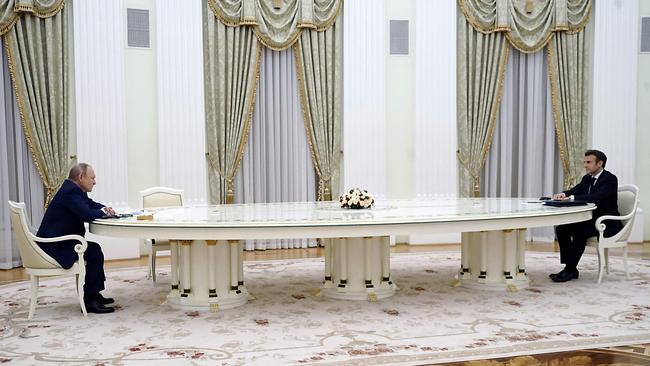
As the panicked leap of faith illustrates, anxiety may trigger negation – a flight into the opposite. Parallels can be seen today with the rise around the world of fundamentalist Islam, Judaism, and Christianity. Asserting certainty of belief in divinely sanctioned creed counters the fear of life being no more than meaningless chaos, without connection, boundaries, or direction. On this front, Putin is expressing yet another reaction against modernity, and the fears it unleashes of Stavrogin paralysis.
Michael Lawriwsky, in an article in the May issue of Quadrant, argues Russia’s creation myth is threatened by the independence of Ukraine. Orthodox Christianity entered the region in 988AD, when it was established in Kyiv. It was much later, in 1114, that a Kyivian monk took Christianity to Moscow.
When Putin stresses that Russians and Ukrainians are the same people, he does so because he needs to be able to claim a direct link back to 988. Otherwise, Moscow is reduced, in terms of religious foundation, to being merely a latter-day cousin – which would be an “intolerable insult to the Russian national myth”. Putin asserted in 2007 that Ukraine is not a real country. Of vital cultural significance to him is Russian possession of the 1000-year-old St Sophia Cathedral in Kyiv.
In short, Putin’s war is deeply cultural, with motivational sources in religion, race, and national myth. All are seen as being under threat from a secular, dynamic, and prosperous modern West, which Ukraine identifies with. Putin has managed to get overwhelming support within Russia for his Ukrainian crusade by tapping into those same deep historical strains within its people.
But culture works in combination with psychology. If Putin drives the war, what, we should next ask, drives him? Here, we enter another pre-modern domain, that of the psychopathic political personality.
Shakespeare provided a suggestive snapshot in his Tragedy of King Richard III. The play opens with Richard outlining his motives and their cause:
Deformed, unfinished, sent before my time
Into this breathing world scarce half made up –
And that so lamely and unfashionable
That dogs bark at me.
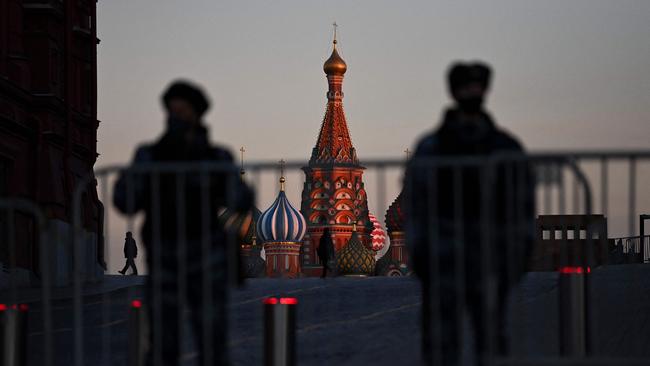
Richard feels under no obligation to others, as he has been set apart and humiliated by his own crookbacked shape, barred by nature from normal human pleasures. He proclaims, with relish, that he will therefore become a villain, his actions subtle, false, and treacherous. Hunchback deformity may be taken here as a metaphor for severe character flaw. The psychological fact is that Richard is utterly bereft of kindness, empathy, and conscience.
Indeed, he orchestrates the deaths of his closest ally, his own wife, brother, innocent young nephews, and many others, and does so without a blink.
What seems to drive Richard is a generalised, demonic lust for power. The focus is on gaining the crown, which he does by devising complicated stratagems of lying and deceit to outsmart others, manipulate them, and bring them down. His calculating dominance of those around him keeps him in icy control of events, until he becomes king, when it turns out he has been much better at plotting than ruling. Under the surface, there reverberates a pervasive resentment against humanity, against normal life, combined with sadistic pleasure in wreaking destruction.
Richard’s character found some contemporary echo in Heath Ledger’s brilliant portrayal of the Joker, in the film The Dark Knight – including the sinisterly comic element of inspired apocalyptic mayhem, which is also in Shakespeare. With Putin, there are parallels in the blank-faced, cold Machiavellian demeanour, leading into the unrestrained destruction of towns and the killing of civilians, accompanied by shameless lying. His brooding presence seems to screen dark rivers of resentment. The notion of the war crime seems to have no register. Eerie photos of him sitting at the end of a monstrous long table, stony faced as he grants a staged interview to a single person sitting at the other end, even the President of France, speaks of a colossal remoteness from any faintly sane humanity.
Putin refers to those in Russia who oppose his war as “scum and traitors”. Russian troops have likely been ordered to shoot Ukrainians indiscriminately. Russian shelling and bombing have been equally callous. Mass graves discovered in liberated towns evoke the horror of a slaughterhouse. Intercepted messages from Russian soldiers sent home display a casual brutality towards all Ukrainians, who have some plausible fear of genocidal aggression being launched against them.
And even if Ukraine wins this war, Russia will not go away. As long as St Sophia Cathedral in Kyiv stands as an independent sacred site, a jewel of Orthodox Christianity, the Russian church is, in its own eyes, tainted with illegitimacy, as is the Russian nation. In terms of reading Putin’s motives, the question remains of how much the cultural justification is merely providing a mask, or smokescreen, behind which to pursue his own power ambitions. Indeed, character may rule, its actions dressed up in the fine clothes of nationalist and Pan-Slavic rationalisations and excuses.
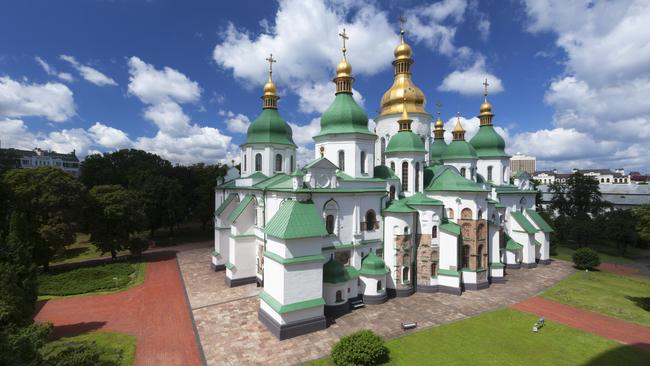
We can’t, of course, know the precise answer. Most likely, there has been a chemical combustion of national mythos and personal psychopathy in the crucible of Putin’s personality. How might this end? In the case of Richard III, a cold monomaniac personality led to the loss of allies and friends, the weakening of his army, and an increasingly erratic strategic sense. There were even signs at the end of him losing his nerve. He was defeated and killed at the battle of Bosworth Field, a climax in which it was almost as if he had willed his own destruction.
In Putin’s case, he may be brought down by some equivalent Necessity. That is, relentless circumstances, or destiny beyond his control, such as illness. Then the nightmare fog of death and destruction that is choking Ukraine may finally lift.
John Carroll is Professor Emeritus of Sociology at La Trobe University.



In terms of Vladimir Putin’s motives for invading Ukraine, most likely two factors – national mythos and personal psychopathy – have combined in noxious harmony.